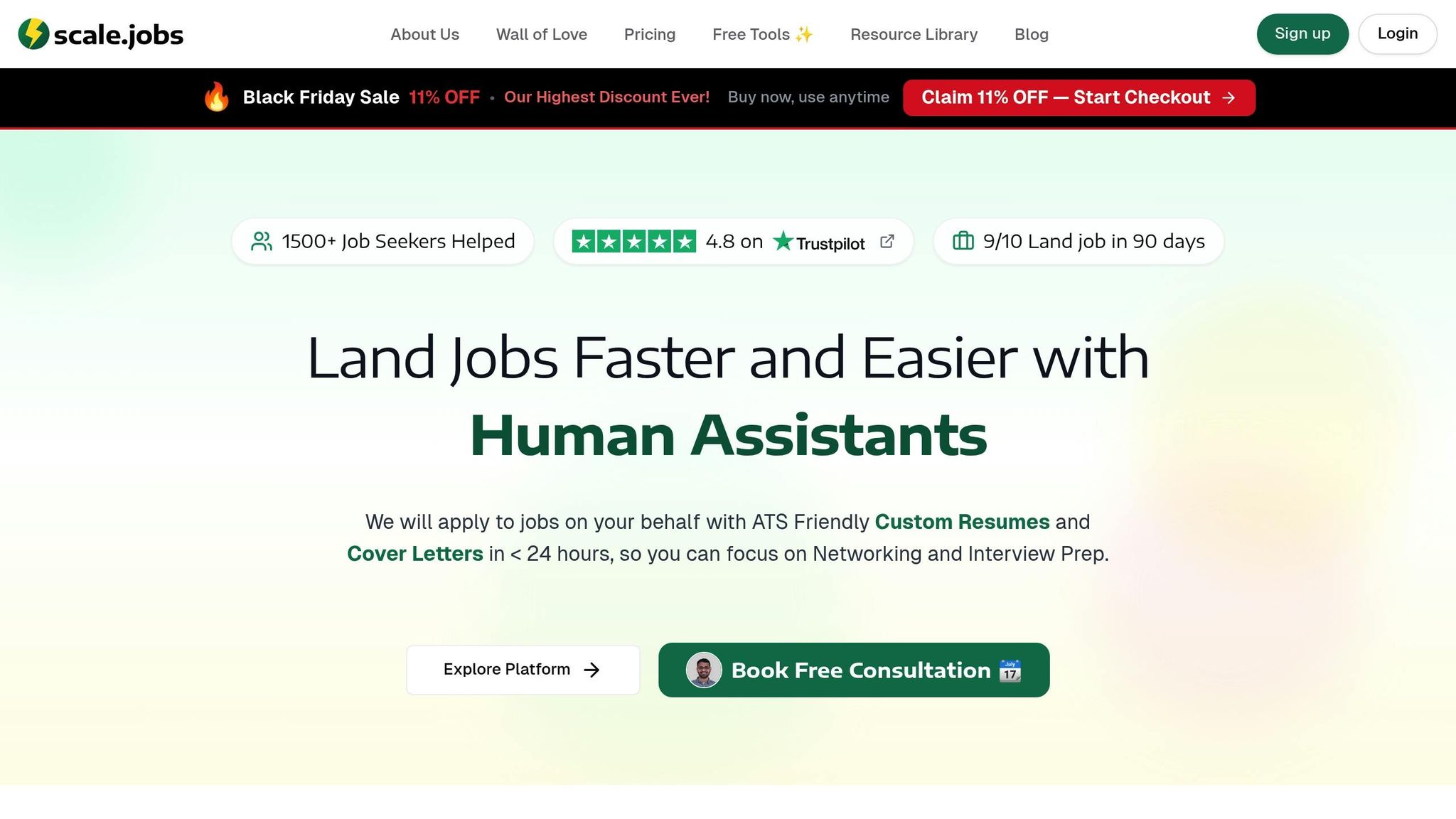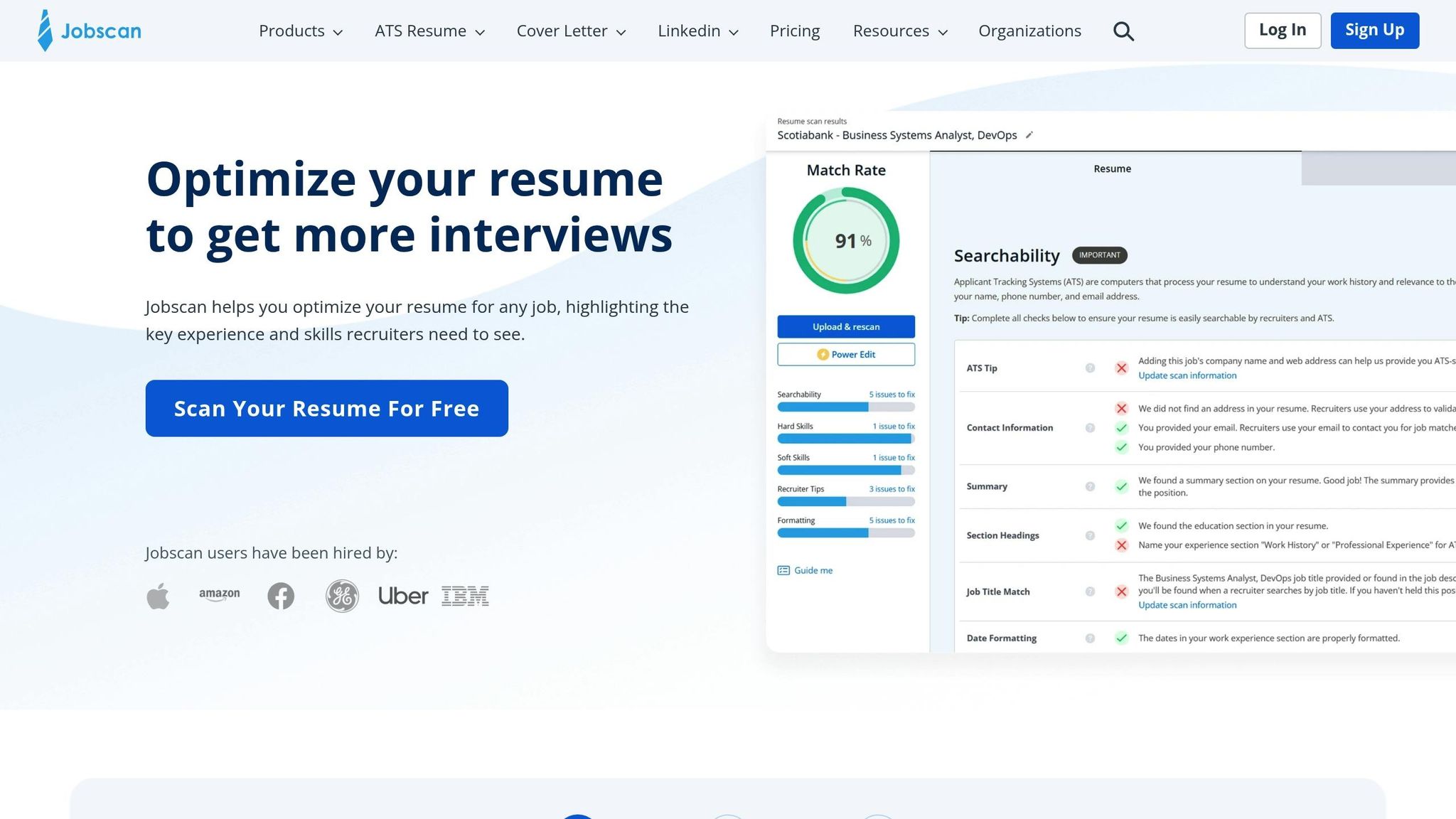DevOps Job Market Trends 2025
Explore the evolving DevOps job market in 2025, highlighting in-demand skills, salary trends, and the impact of AI and remote work.

By 2025, DevOps is central to modern tech strategies, with demand for professionals skilled in cloud-native tools, automation, and agile practices at an all-time high. Key trends include:
- AI and Automation: Companies seek experts who can integrate AI tools for predictive monitoring and resource optimization.
- Platform Engineering: This emerging role focuses on building internal platforms to streamline development and deployment, positioning it as one of the most lucrative roles in tech.
- Remote and Hybrid Work: DevOps jobs continue to thrive in flexible work environments, with tools supporting distributed teams gaining traction.
Top Skills in Demand:
- Tools: Kubernetes, Terraform, AWS, Docker, CI/CD platforms like Jenkins or GitHub Actions.
- Programming: Python, Go, Bash scripting, YAML, JSON.
- Communication: Incident management, cross-team collaboration, and documentation.
Salaries and Growth: DevOps roles, including engineers, SREs, and platform engineers, offer competitive pay, especially in tech hubs like San Francisco and Austin. Remote work is leveling regional salary differences, while hybrid roles remain popular.
For job seekers, platforms like Scale.jobs offer tailored application support, helping candidates stand out in this competitive market by emphasizing relevant skills and experience.
DevOps Tier List: What Actually Gets You Hired in 2025 (Stop Wasting Time!)
Major Trends in the 2025 DevOps Job Market
The DevOps job landscape is evolving, with three major trends shaping how companies hire and utilize talent.
Automation and AI Integration
Businesses are increasingly turning to AI-powered systems for tasks like predicting system failures and optimizing resource use. This has created a growing need for DevOps professionals who can seamlessly combine traditional practices with AI-driven tools. Skills like predictive monitoring and expertise in AI-integrated platforms are becoming essential for staying competitive in this field.
At the same time, automation is being paired with more adaptable work models, further transforming the DevOps space.
Platform Engineering Role Growth
A new wave of platform engineering teams is emerging within organizations. These teams focus on designing internal developer platforms that streamline deployment processes and enhance developer efficiency. By building self-service infrastructure tools, platform engineers reduce bottlenecks and improve workflows. As this role bridges the gap between DevOps and software engineering, it’s becoming one of the most sought-after - and highly paid - positions in the industry.
Remote and Hybrid Work Options
DevOps roles are particularly well-suited for remote and hybrid work setups. Companies are leveraging global talent pools while maintaining productivity and performance. Many professionals now prefer hybrid models, which balance remote work with occasional in-person collaboration. To support these distributed teams, businesses are adopting tools like virtual incident response systems and asynchronous code review processes, ensuring smooth operations across time zones.
Required Skills and Technologies for DevOps Jobs
The world of DevOps in 2025 is becoming more specialized, with companies seeking professionals who can manage traditional infrastructure while also mastering newer technologies that drive modern development processes. Here's a closer look at the skills and tools that are shaping the field.
Most Requested Technologies
A handful of technologies stand out as must-haves for DevOps professionals:
- Kubernetes: This remains the go-to tool for container orchestration, with expertise in deployments, service meshes, and multi-node troubleshooting being highly sought after.
- Terraform: As the leading infrastructure-as-code tool, knowledge of Terraform is crucial for managing states and deploying infrastructure across AWS, Azure, and Google Cloud environments.
- AWS Services: Proficiency in services like Lambda, ECS, RDS, and CloudFormation is in high demand. Skills in Azure (especially Azure DevOps) and Google Cloud (notably Google Kubernetes Engine) are also highly valued.
- Docker: A foundational tool for container management, Docker continues to be essential for optimizing and securing containerized applications.
- CI/CD Tools: Mastery of tools like Jenkins, GitLab CI, GitHub Actions, and Azure DevOps is critical, especially for optimizing pipelines and implementing advanced deployment strategies.
- Monitoring and Observability: Tools such as Prometheus, Grafana, the ELK Stack (Elasticsearch, Logstash, Kibana), and Datadog are increasingly important as companies focus on maintaining system reliability and performance.
To complement these technologies, programming skills are becoming an equally vital part of the DevOps toolkit.
Programming and Scripting Requirements
As DevOps roles evolve, the ability to write and understand code is no longer optional - it’s essential.
- Python: A staple for automating scripts, integrating APIs, and managing infrastructure. Python is particularly valued for creating custom monitoring solutions and automating complex deployment workflows.
- Go (Golang): This language is gaining traction due to its use in building microservices and infrastructure tools. Many popular DevOps platforms, including Kubernetes, Docker, and Terraform, are built with Go, making it a valuable skill for customization and contribution.
- Bash Scripting: A must-have for Linux system administration, advanced shell scripting is crucial for automating deployments, maintenance, and troubleshooting.
- YAML and JSON: These are essential for configuration management, whether you're working with Kubernetes manifests, CI/CD pipelines, or infrastructure-as-code templates. Debugging and writing these files are core skills.
- PowerShell: For teams managing Windows-based systems or hybrid environments, PowerShell expertise is indispensable, especially for handling Azure resources or Windows Server tasks.
Communication and Teamwork Skills
Technical expertise alone isn’t enough in today’s DevOps roles. Strong communication and collaboration skills are equally critical.
- Cross-Functional Communication: DevOps professionals need to explain complex technical concepts in ways that non-technical stakeholders - like project managers and executives - can understand.
- Incident Response Communication: Leading incident calls, coordinating responses across teams, and providing clear updates during outages or performance issues are highly valued skills.
- Documentation: With distributed teams becoming the norm, the ability to create clear runbooks, architectural diagrams, and process documentation is increasingly important for ensuring systems can be maintained and understood by others.
- Mentoring and Knowledge Sharing: As organizations expand their DevOps practices, senior professionals who can train junior team members and establish best practices are in high demand.
In today’s DevOps landscape, professionals who blend deep technical knowledge with strong communication and collaboration abilities are essential. Companies are looking for candidates who can align technical solutions with business needs while fostering teamwork across engineering, operations, and business teams. These skills not only define success in DevOps but also pave the way for career growth, as explored in the next section's salary data.
2025 Salary Data and Career Growth
In 2025, DevOps professionals continue to be well-compensated for their expertise. Employers across the U.S. are heavily investing in DevOps talent, offering attractive salaries and plenty of opportunities for career progression. These trends reflect the growing acknowledgment of the critical role DevOps skills play in today’s tech landscape.
Salary Ranges by Position
As the demand for DevOps expertise grows, compensation packages are evolving to match the rising value of these skills. DevOps Engineers, for instance, see significant variation in pay depending on experience and location. Entry-level engineers start with solid base salaries, while mid- and senior-level professionals - often with added perks like equity and bonuses - earn substantially more. Similarly, Site Reliability Engineers (SREs), who focus on ensuring system reliability and performance, are highly sought after, particularly by large tech firms, and are compensated accordingly.
Platform Engineers are another group seeing lucrative salaries, especially those proficient in cloud-native technologies and container orchestration. Meanwhile, leadership roles such as DevOps Managers and Engineering Directors come with even more substantial paychecks, reflecting the strategic and managerial expertise these positions require.
Geography still plays a role in salary differences. Traditional tech hubs like San Francisco, Seattle, New York, and Austin continue to offer wages above the national average. However, the rise of remote work has led many companies to adjust their compensation strategies, creating more uniform pay scales across regions.
Market Size and Growth Forecasts
The DevOps market is poised for significant growth, fueled by ongoing digital transformation, widespread cloud adoption, and the rise of multi-cloud and hybrid strategies. In the U.S., job postings for DevOps roles have surged, outpacing many other professions.
The integration of artificial intelligence into operational workflows is also creating new roles, such as those blending DevOps with machine learning operations (MLOps). These hybrid positions often come with higher salaries compared to traditional DevOps roles. Additionally, the growing emphasis on DevSecOps, which incorporates cybersecurity into CI/CD pipelines, has increased demand for specialists with expertise in embedding security measures - a skill set that commands premium pay.
Investments in advanced DevOps tools and the expansion into new geographic markets further underline the industry’s growth. These trends point to a steady demand for skilled professionals, offering strong career prospects and financial rewards across all levels of the DevOps field.
Top Hiring Locations and Remote Work Data
When it comes to the DevOps job market, geography plays a key role alongside salary trends. DevOps roles thrive in both established tech hubs and up-and-coming markets. From traditional hotspots to emerging tech communities across the U.S., each location offers unique benefits. Add to that the rise of remote work, and the landscape becomes even more dynamic.
Leading Cities for DevOps Hiring
Major tech hubs have long been attractive due to their strong ecosystems and access to venture capital. At the same time, emerging markets across the country are stepping up, developing competitive tech sectors while offering lower costs and a better quality of life. These regions provide companies with an edge by reducing operational expenses and tapping into diverse talent pools.
Remote Work Trends
The move toward remote and hybrid work has reshaped how DevOps professionals are hired. With remote work, companies can recruit top talent from anywhere in the country, while employees gain the freedom to craft their ideal work environments. Hybrid models, on the other hand, combine the efficiency of remote work with the benefits of occasional in-person collaboration. This setup is especially effective for DevOps teams managing intricate systems across different time zones.
Understanding these trends in location and work models is essential for anyone planning their next steps in the DevOps field.
Scale.jobs vs LazyApply: Why DevOps Professionals Should Switch

In the highly specialized DevOps job market, success isn’t about sending out hundreds of generic applications - it’s about precision and relevance. LazyApply, with its AI-driven mass application strategy, might work for volume-focused job seekers, but DevOps roles require a tailored approach. That’s where Scale.jobs shines. Combining free tools, AI assistance, and dedicated human support, Scale.jobs is designed to tackle the unique challenges faced by DevOps professionals.
A Complete Job Search Platform
Scale.jobs offers an all-in-one solution for job seekers, featuring a robust job board with over 2 million monthly postings, ATS-compliant resume builders, networking tools, and application tracking systems.
- Free Tier: Includes job application tracking and basic ATS resume-building tools.
- AI Assistant Pro: For $9 per month during the launch period (later $19/month), users unlock unlimited AI-generated resumes and cover letters tailored to emphasize their DevOps expertise.
LazyApply, on the other hand, focuses on high-volume applications with an annual subscription model, which often lacks the personalized support critical for landing technical roles. Scale.jobs’ comprehensive and tailored approach makes it the better choice for DevOps professionals.
Why Scale.jobs Stands Out Against LazyApply and Jobscan

Scale.jobs brings a transparent, human-driven workflow that sets it apart from competitors like LazyApply and Jobscan. Here’s how:
- Human-Crafted Customization: Trained experts create ATS-optimized resumes and cover letters, ensuring your technical skills and project experience are effectively communicated.
- Transparency You Can Trust: Real-time updates via WhatsApp, time-stamped proof-of-work screenshots, and detailed dashboards keep you informed every step of the way.
- Flat-Fee Pricing: Avoid recurring subscriptions with campaign bundles starting at $199 for 250 applications - no hidden fees or long-term commitments.
- DevOps-Focused Expertise: Scale.jobs understands the unique requirements of DevOps roles, tailoring each application to highlight skills like containerization, CI/CD pipelines, and cloud management.
- Proven Track Record: Over 1,500 job seekers have used Scale.jobs, with 9 out of 10 landing a job within 90 days. Plus, 70% of users receive refunds for unused credits as they secure positions quickly.
Specialized Support for DevOps Professionals
DevOps roles demand more than just technical expertise - they require the ability to communicate how your skills deliver business value. Scale.jobs excels at bridging that gap. Their human assistants are trained to highlight your technical accomplishments and project outcomes, whether it’s expertise in Kubernetes, automating CI/CD pipelines, or managing complex cloud environments.
With a 24-hour turnaround for custom resumes and cover letters, Scale.jobs ensures you’re ready to apply to opportunities as soon as they arise. This quick, tailored approach extends to corporate ATS systems and niche DevOps job boards alike. For candidates navigating visa requirements, the team ensures every application is optimized to showcase your qualifications effectively.
When precision and personalization matter most, Scale.jobs delivers the support DevOps professionals need to stand out.
DevOps Job Market Summary for 2025
By 2025, the DevOps job market highly values professionals who can combine technical expertise with the ability to clearly align their work with business goals. Thriving in this field requires not just technical know-how but also the ability to communicate how those skills contribute to a company’s broader objectives.
This combination of skills doesn’t just enhance workplace performance - it also makes for stronger, more impactful job applications. To stand out, a targeted and strategic job search becomes crucial.
Platforms like Scale.jobs offer a competitive edge over generic, high-volume tools such as LazyApply. With its human-assisted service, Scale.jobs crafts tailored applications that emphasize your technical abilities and project achievements. Transparent pricing starts at $199 for 250 applications, providing DevOps professionals with a smarter approach to navigating today’s competitive job market.
FAQs
What are the best ways for DevOps professionals to integrate AI and automation into their workflows?
DevOps teams can weave AI and automation into their workflows by using tools and practices aimed at boosting efficiency and scalability. A good starting point is to pinpoint repetitive tasks - like code deployment, testing, and monitoring - and bring in AI-driven tools to handle these processes. AI-powered analytics can further assist by predicting potential system issues, optimizing resource use, and aiding in better decision-making.
Incorporating Infrastructure as Code (IaC) and enhancing CI/CD pipelines with AI can also simplify deployments and reduce errors. To make the most of these advancements, staying up-to-date on the latest AI technologies in DevOps and continuously improving skills is key for seamless integration and lasting success.
What skills are essential for DevOps professionals aiming to excel in platform engineering roles?
To excel in platform engineering as a DevOps professional, it's essential to build a strong foundation in cloud platforms like AWS, Azure, or Google Cloud. These platforms form the backbone of modern infrastructure and are integral to most engineering roles today.
You’ll also want to become proficient with containerization tools like Docker and orchestration platforms such as Kubernetes. These are crucial for managing scalable and efficient systems.
Beyond that, gaining expertise in infrastructure as code (IaC) tools like Terraform or Ansible is a must. Automation plays a huge role in platform engineering, and these tools help streamline processes. Pair this with strong scripting skills in languages like Python, Bash, or Go, and you'll be well-equipped to build and maintain seamless pipelines.
Lastly, make sure you have a solid grasp of CI/CD pipelines, along with experience in using monitoring tools and following system security best practices. These skills will give you a competitive edge in this fast-paced field.
How are remote and hybrid work trends influencing DevOps salaries and job opportunities in 2025?
Remote and hybrid work models are transforming the DevOps job market in meaningful ways. Companies are no longer restricting their talent search to local areas; instead, they're tapping into a global pool of professionals. This approach often results in competitive salaries, especially in regions where the cost of living is lower. On the flip side, roles requiring expertise in automation, cloud infrastructure, and CI/CD pipelines are seeing pay increases due to the high demand for these specialized skills.
The push for flexible work environments is also fueling job growth. Organizations are heavily investing in scalable DevOps practices to effectively support distributed teams. This trend has led to a growing need for professionals who excel in collaboration tools, cloud technologies, and security. As a result, DevOps is shaping up to be one of the fastest-growing fields to watch in 2025.




